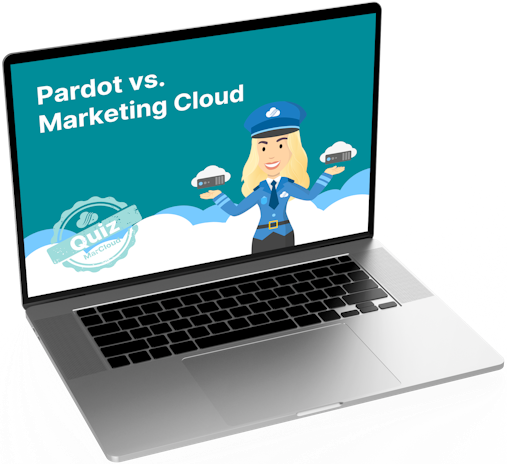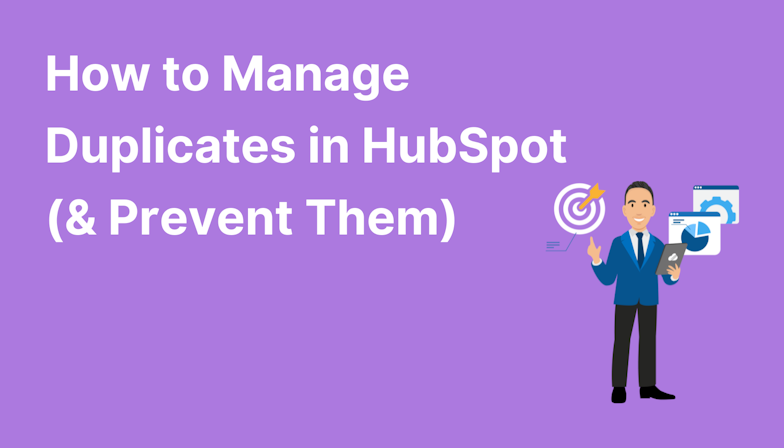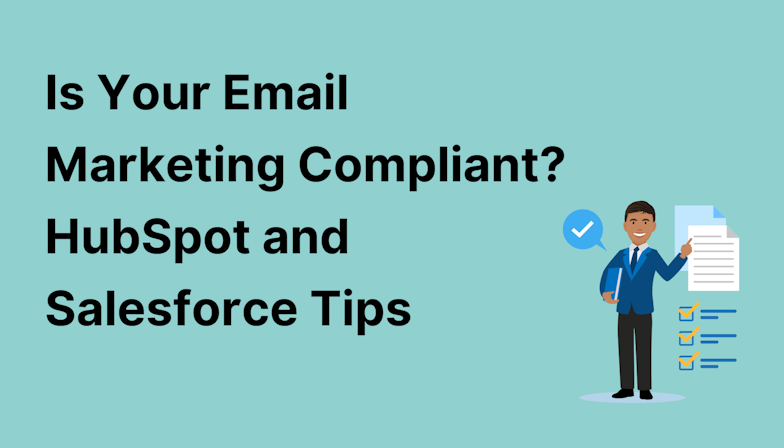This blog was proofed by Anton Minnion Ph.D., Head of Technical Services at MarCloud who has over 8 years experience working with Oracle Eloqua, Salesforce Marketing Cloud Engagement, and Salesforce Marketing Cloud Account Engagement.
You may have already heard that Oracle is laying off hundreds of its employees primarily focused on the advertising and customer experience group. In other words, this could massively impact Eloqua customers from a customer service and almost definitely an innovation point of view. Given the talent shortage in the space, this is a bold move from Oracle. For some customers, it will be the beginning of a search for Eloqua alternatives.
Before we delve into the mechanics of Salesforce Marketing Cloud and why we believe as a marketing platform it’s superior to Eloqua, we need to set the scene to really explain why we back Marketing Cloud over Eloqua any day of the week.
Note: We are talking about two software behemoths and MarCloud has a clear and obvious bias towards Salesforce as a formal partner. We will aim to be as unbiased as we can. If you're interested in a personalised review of your marketing technologies and recommendations on the right martech strategy for your business, send us a message.
In the most recent IDC Worldwide Semiannual Software Tracker, Salesforce is dominating the market. Funnily enough, Marc Benioff, Salesforce CEO, spent around 13 years of his career working at Oracle before setting up Salesforce and it’s clear he understands Oracle’s shortfalls.
This is a pretty long blog, so click the links below to take you to the bits you care about most:
Rankings in the ecosystem
Marketing Cloud vs Eloqua
User Experience
Email Builder
Artificial Intelligence (Advanced Intelligence vs Einstein)
Data modelling
Reporting
Learning and support
Rankings in the ecosystem
Let’s break this down briefly to establish Salesforce’s dominance in the space vs Oracle and other Eloqua alternatives.
Salesforce is ranked #1 for Sales Force Productivity and Management Applications. This is referred to as a ‘core’ product in Salesforce and it makes sense that they lead this space.
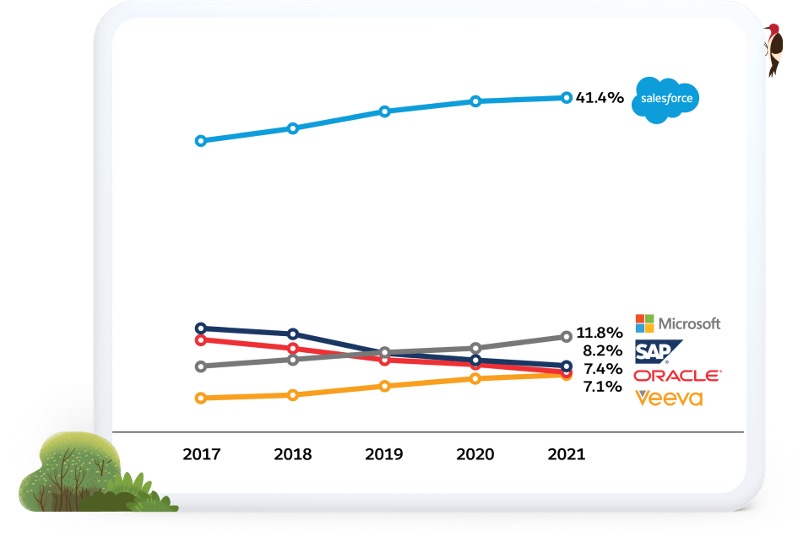
Taken from Salesforce.com
Source: IDC, Worldwide Semiannual Software Tracker, April 2022.
Sales Force Productivity and Management Applications refer to an IDC-defined functional market within the broader CRM Applications market.
Salesforce is ranked #1 for Customer Service Applications.
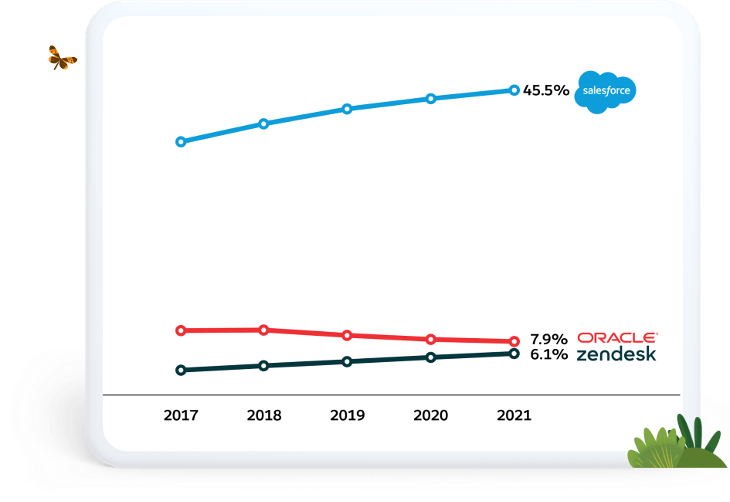
Taken from Salesforce.com
Source: IDC, Worldwide Semiannual Software Tracker, April 2022.
Customer Service Applications refer to an IDC-defined functional market within the broader CRM Applications market.
Salesforce is ranked #1 for CRM Applications, beating huge players like SAP and Microsoft.
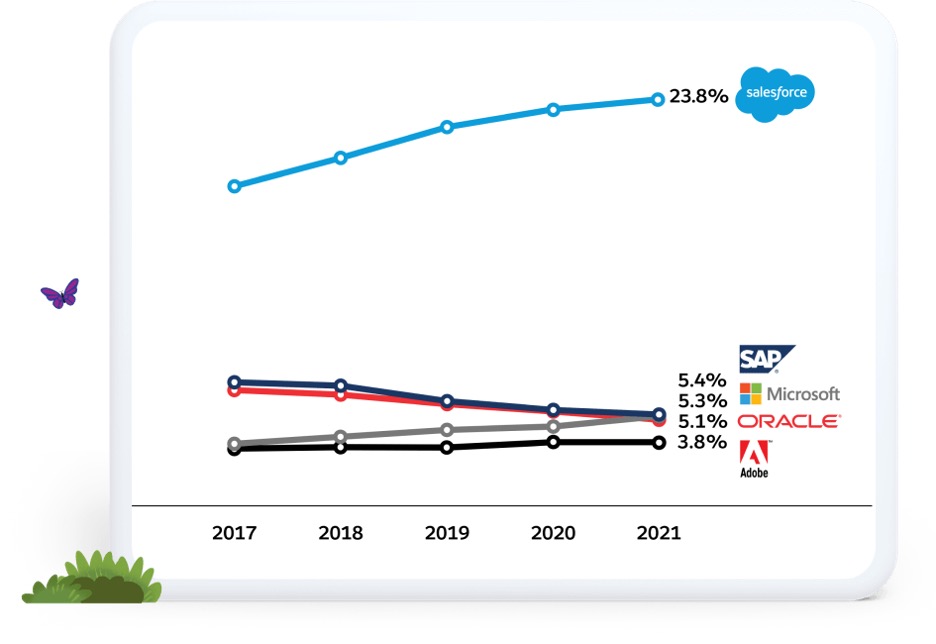
Taken from Salesforce.com
Source: IDC, Worldwide Semiannual Software Tracker, April 2022.
CRM market includes the following IDC-defined functional markets: Sales Force Productivity and Management, Marketing Campaign Management, Customer Service, Contact Center, Advertising, and Digital Commerce Applications.
Salesforce Marketing Cloud vs Eloqua
Now we move on to marketing software specifically, and Salesforce leads again against some huge Eloqua alternatives like Marketo, Dynamics 365, and HubSpot. This is really important to note because only a matter of years ago in 2018, Salesforce was trailing on the marketing front.
Since then, a lot of investment has gone into Marketing Cloud Engagement and Marketing Cloud Account Engagement (formerly Pardot) to allow Salesforce to overtake this category and maintain growth.
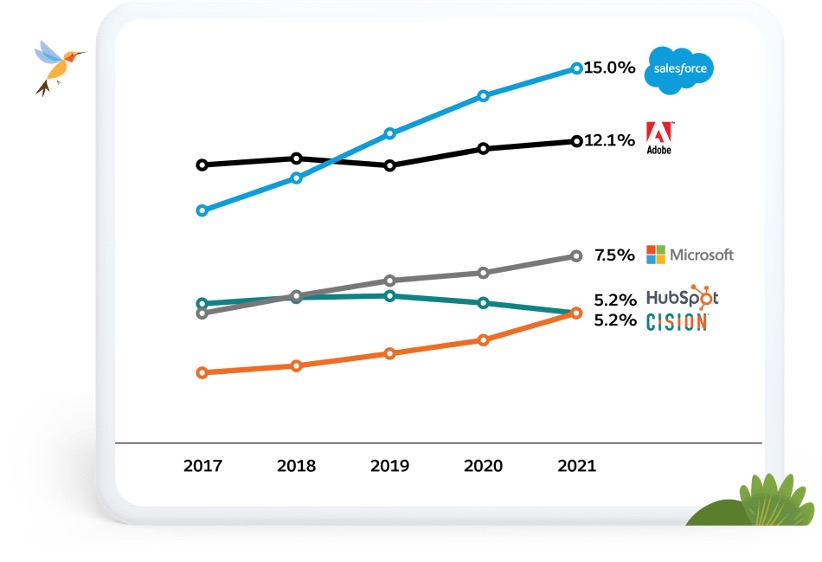
Taken from Salesforce.com
Source: IDC, Worldwide Semiannual Software Tracker, April 2022.
Marketing Campaign Management Applications refer to an IDC-defined functional market within the broader CRM Applications market.
User Experience
Salesforce has a ‘look and feel’ and if you speak to any hardcore user or consultant in the space, they’ll know what I mean.
Kind of like the iPhone experience, Salesforce has accomplished this when you use their software. Moving from Sales Cloud to Service Cloud to Marketing Cloud and back to Tableau Analytics doesn’t ‘feel’ too different. Users get a sense of familiarity when engaging with any of the Salesforce clouds.
This UX is so important when new features and products are released because there’s always that feeling of being there before so it’s not another tool to learn.
Remember, these tools exist to enable you in your role so UX can never be downplayed.
Take a look at the Oracle Eloqua marketing canvas below. Clearly, there’s a lot of power in this tool given the Campaign Step options you can choose from, however, it all feels a bit like MailChimp. You just know that some companies will have canvases that look immensely chaotic.
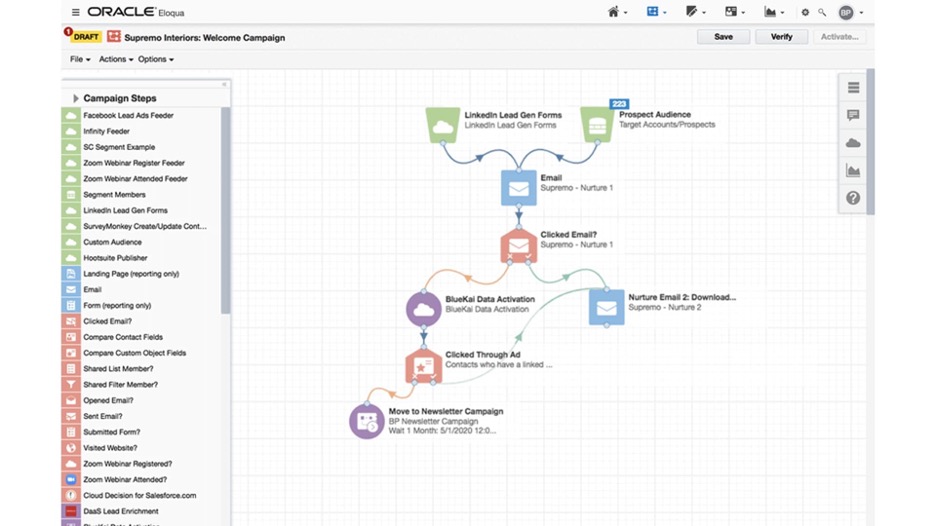
Source: Oracle
Compare this to the Marketing Cloud Journey Builder below, which brings a lot of clarity to building journeys. It’s very nice to use.
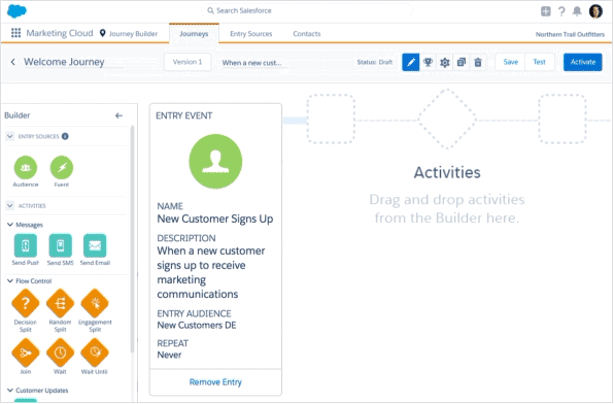
Source: Salesforce.com
I’ve personally always liked tools that follow a timeline approach (left to right) as it subtly reminds the user that a real human being will go through this automated program and come out the other side.
Let’s play devil’s advocate though and say that as an Eloqua user you love the campaign canvas. Looking at functionality first and foremost, Journey Builder is more powerful for a few reasons, such as:
- Ability to do branching logic rather (in Eloqua the binary tree can make canvases much bigger than they need to be).
- Fast reactions to events in Sales Cloud, whereas Eloqua requires a long wait.
Ultimately, the Eloqua campaign canvas may be nice enough to use but it struggles once a campaign reaches a certain size and complexity.
Email Builder
There’s not too much difference between the email builders from a cosmetic point of view.
However, when you start to look at the options in Marketing Cloud you’ll see that Artificial Intelligence (Einstein) is built in. You can simply drag and drop content blocks onto an email canvas and lean on AI to work out the best content for your audience. There’s also the option to test your content with AI too which is something not all platforms can offer.
Veteran users of Eloqua often bemoan the lack of sophisticated dynamic content tools, with Marketing Cloud you can leverage the relational data model and AmpScript to create truly dynamic and hyper-personalized experiences.
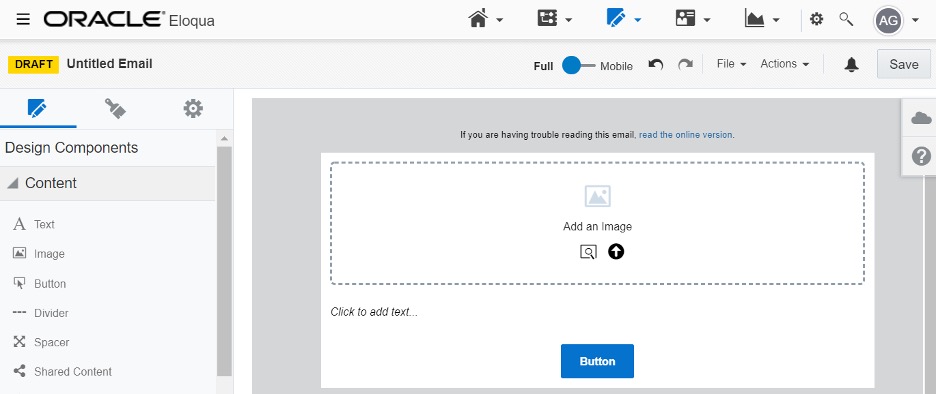
Source: Oracle Help Center
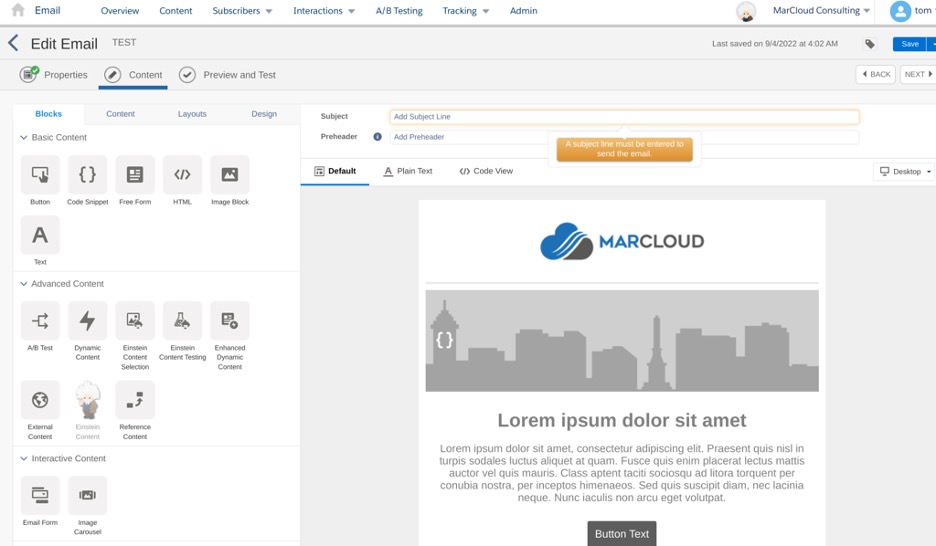
AI (Advanced Intelligence vs Einstein)
This leads us nicely into AI! Salesforce refers to this as ‘Einstein’.
Eloqua has its own version of Einstein called Advanced Intelligence, which does have some nice features like Contact Fatigue analysis. This is a pretty important feature for any business emailing millions of data and it’s cool that you can use ‘Fatigue level’ in dynamic content within Eloqua for better engagement.
Besides email fatigue, Eloqua has Account Intelligence (scoring Accounts) and email optimisation (subject line improvement and send time optimisation).
Salesforce has been doing all of these things for a while and takes it a little further with Einstein being fully baked into the system. See below.
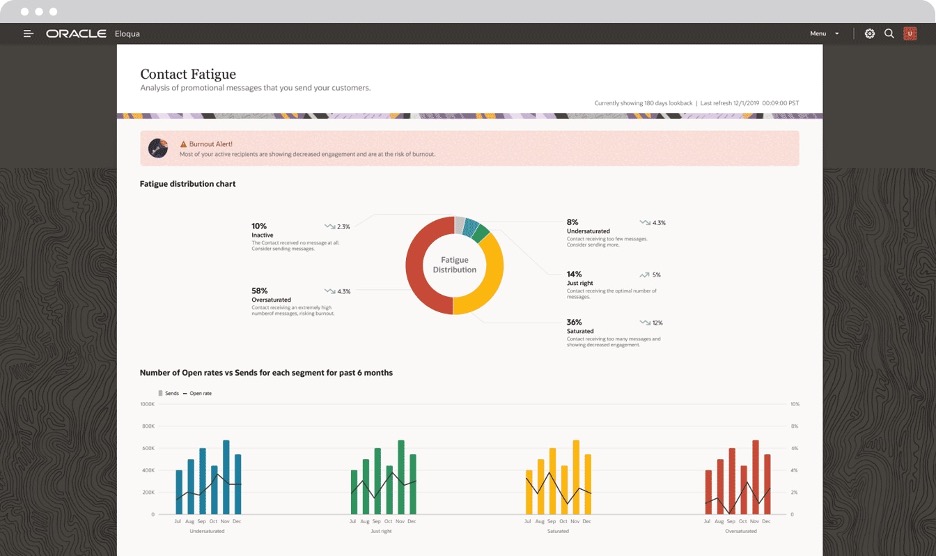
Source: Oracle
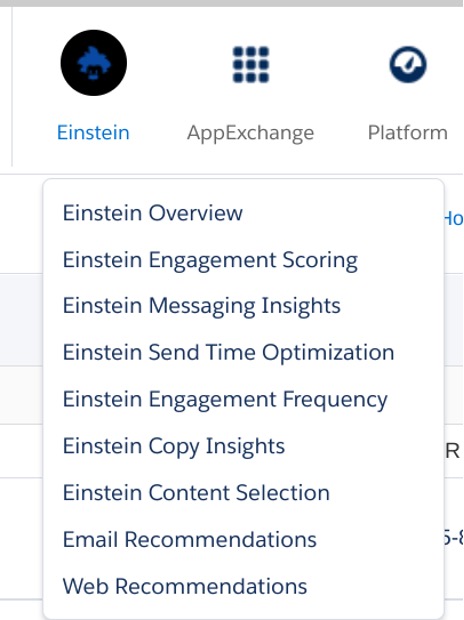
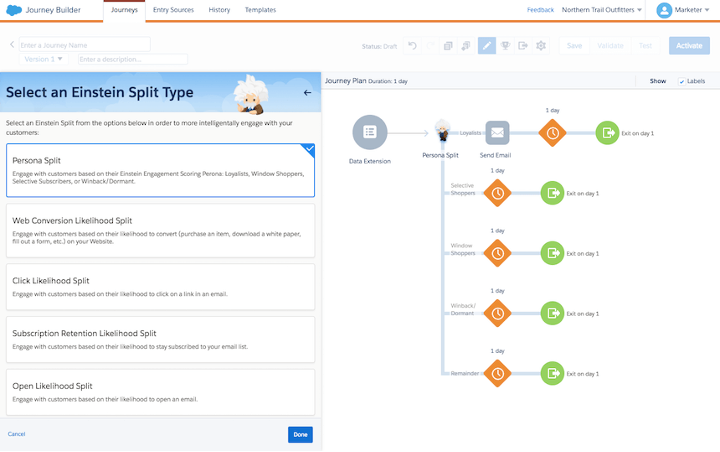
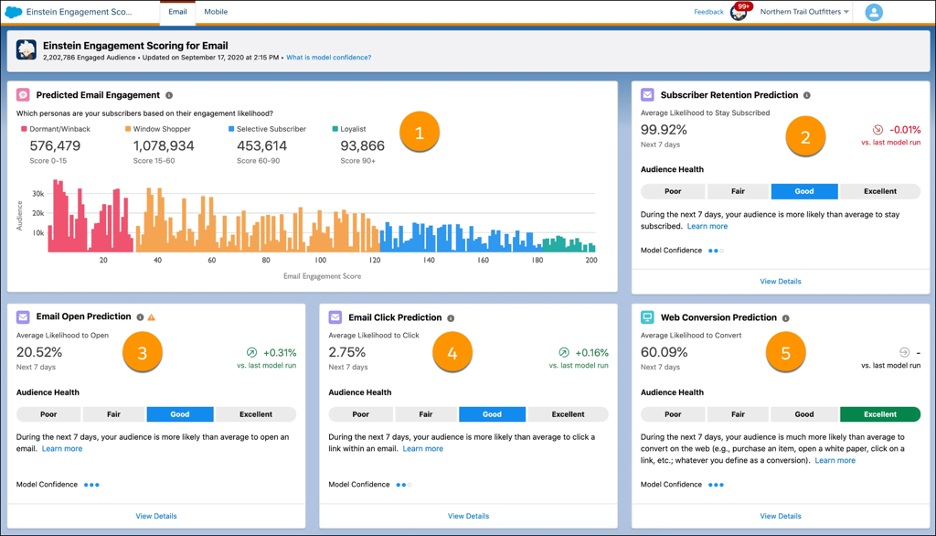
Source: Trailhead
Data modelling and data
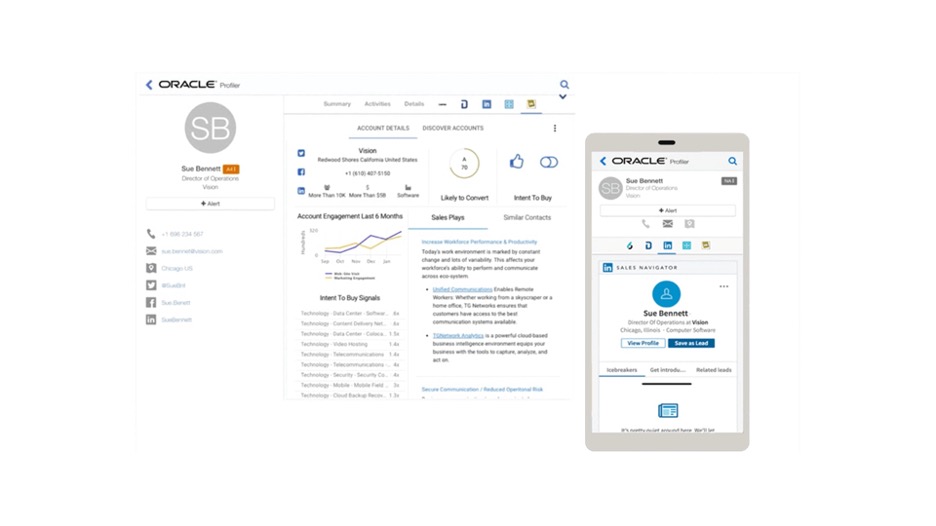
Source: Oracle
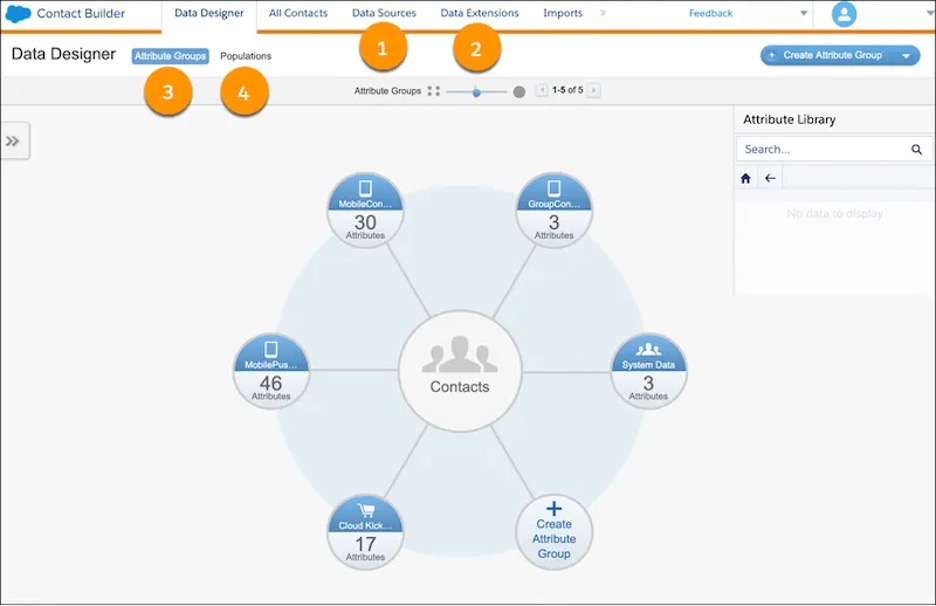
Source: Trailhead
Eloqua’s data system lies somewhere between the elegance and simplicity of Pardot and the fully-fledged, industry-leading, relational database offered by Marketing Cloud Engage.
Like Pardot, Eloqua uses custom objects to store bespoke data that can be structurally linked to a Contact or Account. It is, on balance, more powerful than Pardot’s custom data, but is still restricted as you need to link each object to either the Account or the Contact.
Marketing Cloud allows a full relational data model to be built, so the need for clunky workarounds to facilitate complex use cases is dramatically reduced. Add to this power, the ability to create data tables on the fly and directly interact with Sales Cloud data in real time via Marketing Cloud Connect, and there is only one winner in terms of data management.
Reporting
Arguably one of the biggest components of any mass marketing tool is its ability to report on campaign performance.
Again, UX plays a huge role in this but the mechanics behind the platform are far more important when it comes to data. Some of the more primitive systems aren’t built in a way that allows the tool to reach or load data in a way that’s easily segmented or manipulated by marketers.
Eloqua and Marketing Cloud are very powerful tools and both handle reporting very well.
However, I’d argue that with Datorama (a Salesforce acquisition in 2018) powering the reporting within Marketing Cloud, it’s very hard to compete with. I mean, Datorama at the time had customers like IBM and Ticketmaster then Salesforce came and bought them to supercharge analytics within these platforms.
Oracle did try to bundle their BI tool in with Eloqua but our experience is that this is difficult to use even for advanced users and only allows access to certain fields, relying on SQL knowledge to do anything significant.
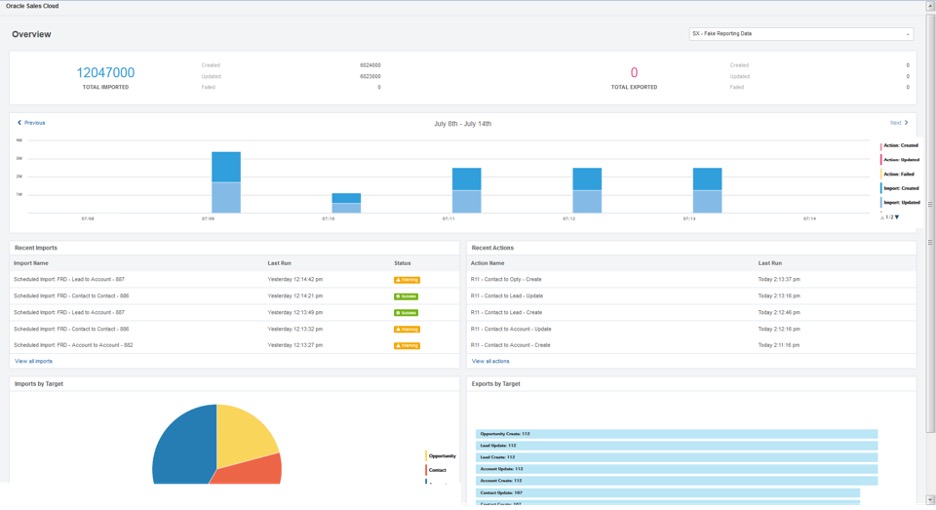
Source: Oracle Help Center
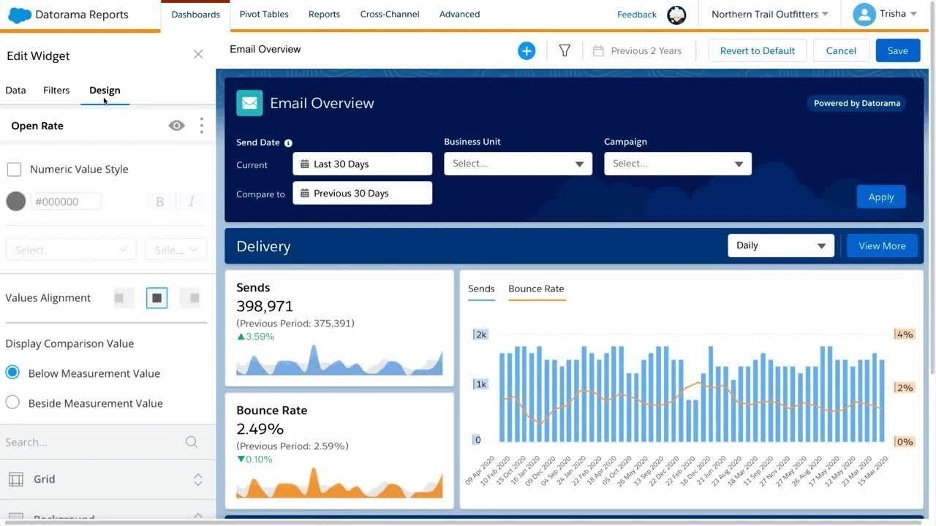
Source: Salesforce Marketing Cloud YouTube Channel
Learning and support
If there’s something you don’t understand, you want to know you have resources to lean on to work out the knowledge gap. Now, both companies provide resources but here’s the difference:
Oracle University: Paid
Salesforce Trailhead: Free
Trailhead is actually gamified and if you don’t know already, there’s a massive community of professionals who help each other out. We’ve got the Salesforce community where you can post problems and get answers, there are Slack channels and partners like us who can help.
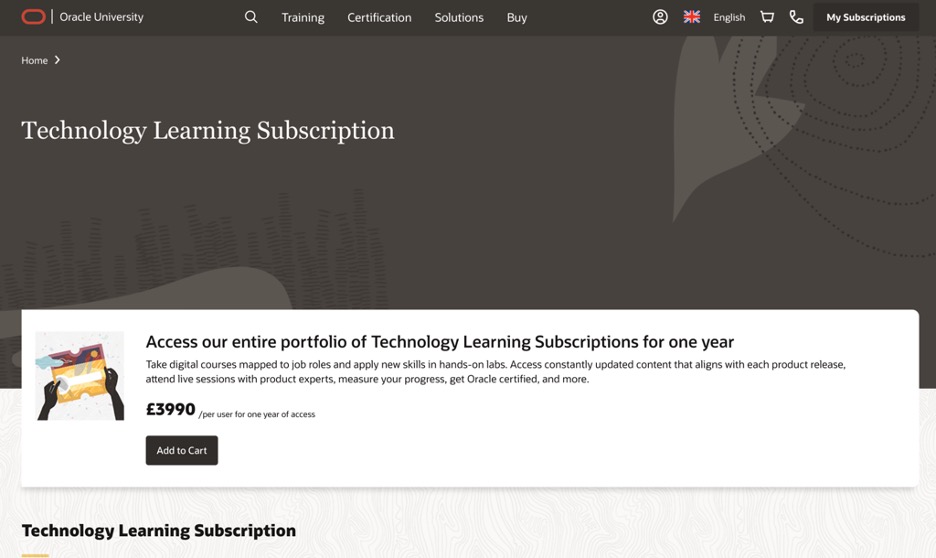
Source: Oracle University
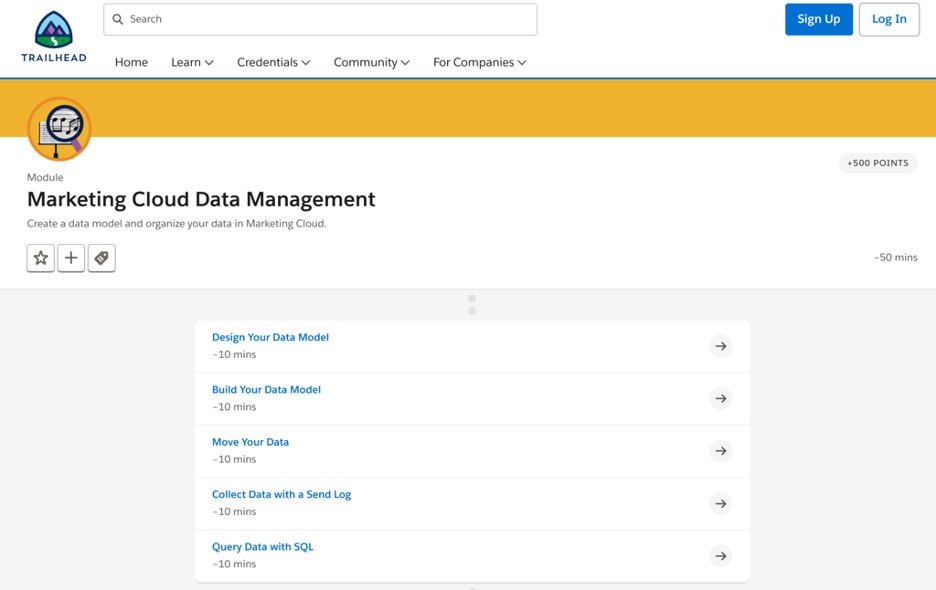
Source: Trailhead
If you’re weighing up Marketing Cloud versus Eloqua or reacting to the news that teams are being laid off by searching out Eloqua alternatives. I hope this blog was at least slightly useful and apologise for any biased statements. As I said at the beginning, we’re a Salesforce Partner and are 100% focused on Salesforce software. We don’t work on any other platform even though we have experience in the team in Eloqua, Marketo, HubSpot and most of the smaller tools too.
Want to know more? Connect with me on LinkedIn as I post a lot about Marketing Cloud or contact us if you are looking to make the switch and would like help with implementation.

